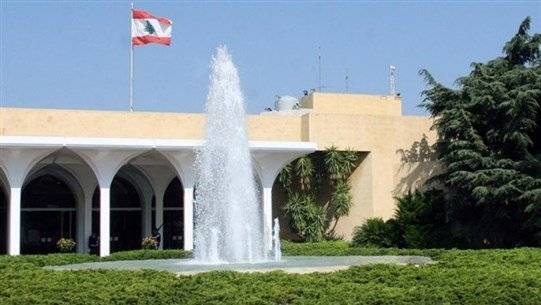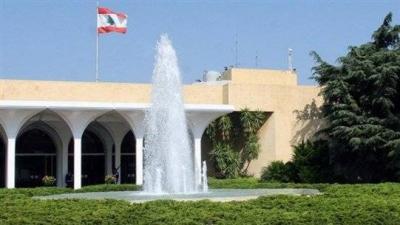The mandatory parliamentary consultations conducted by President Michel Aoun, which led to the re-nomination of caretaker Prime Minister Najib Mikati for forming the new government, demonstrated that the international community, both Arab and Western, distanced itself from interference and preferred that the consultations proceed internally. This contrasts with the rumors that some Arab parties favored appointing a political figure from outside the traditional club of prime ministers; such a development relieved Mikati and dispelled his concerns, as stated by a former government source, regarding rumors that the consultations would carry an unforeseen surprise that would culminate in the dismissal of his role in transitioning Lebanon from its ongoing crisis to a recovery stage, which remains stalled until the current government responds to the conditions set by the International Monetary Fund to reach a safe harbor.
The former government source confirmed to "Asharq Al-Awsat" that Mikati's re-nomination to form the government carries no constitutional flaws, and the true measure lies in its formation to explore the intentions to determine whether the political path is paved for the establishment of the government or if those who refrained from naming Mikati would attempt to obstruct its formation. Nonetheless, the international community views the government formation as a necessary step to buy time, thereby prioritizing the constitutional requirement for electing a new president to replace Aoun, whose presidential term ends on October 31, as it is seen as the obligatory passage for effecting change that paves the way for restructuring authority.
The same source, who preferred not to be named, pointed out that the consultations were marred by many political flaws and shortcomings, indicating that the presidential elections still take precedence over other constitutional obligations. Most of the MPs who participated were aware that forming a new government posed significant difficulties and that maintaining the status quo was one of the first options for buying time until a new president is elected. This is the reason for the fragmentation that affected most parliamentary blocs, especially those that have emerged recently.
He noted that the insistence of certain blocs, particularly the Lebanese Forces bloc and the Strong Lebanon bloc led by MP Gebran Bassil, not to nominate anyone to form the government, is an unprecedented practice in the history of government formations. They could have named someone they consider suitable to compete with Mikati's nomination instead of resorting to concocting justifications to defend their position, which was met with annoyance from key components in the Sunni arena under the pretext that it targets the political position of the Sunni community within the system.
He indicated that there was no justification for some to refrain from naming candidates, as this constitutes a breach of the principle of partnership, despite a complete lack of minimal communication between the Lebanese Forces and the Free Patriotic Movement. He questioned, "Where does Maronite Patriarch Bechara Rai stand on the negative voting of the two main forces in the Christian street? Are there valid reasons for their refusal to name candidates? What will be the reaction if calls in the Sunni street rise to boycott the presidential election in response to the 46 MPs' refusal to nominate someone to form the government?" Noting that the vast majority of them are Christians belonging to the two largest parliamentary blocs in parliament.
The same source confirmed that the refusal to name candidates is the other face of boycotting the consultations, especially since it was not an individual decision but came based on a prior agreement. He called it a dangerous precedent that cannot be defended, and the Lebanese Forces could have nominated another figure they consider part of the change movement, based on the justification provided by MP George Adwan in defense of not nominating former Lebanese ambassador to the UN, Naufal Salam, a member of the International Court of Justice. This also applies to Bassil, who mentioned the names of MP Abdul Rahman Al-Bizri and former IMF expert Saleh Nasouli, without endorsing either for nomination.
He relayed that Mikati is not inclined to rush the process; he is holding consultations for government formation and insists on expediting it without haste, considering that time does not allow for delays in its birth. This means he will not spend most of his time moving between the government headquarters and the presidential palace in Baabda and may have to present Aoun with a balanced and weighty ministerial formation to gauge his reaction and subsequently decide on a path forward, so as not to allow unnecessary extensions of consultations to exhaust and extort him, despite his commitment to not yield to conditions that do not serve the country's recovery.
Therefore, government formation will face difficulties from the political team aligned with Aoun, who will harmonize with his political heir Bassil, who nearly closed doors to cooperation with Mikati by stating that the refusal to nominate anyone corresponds to significant challenges impeding its formation and that reform cannot be achieved with its president.
Thus, the convergence of the opposing sides, specifically the Lebanese Forces and the Free Patriotic Movement, under the umbrella of refusing to nominate any candidate for the premiership does not imply there is movement between them, but rather behind the scenes to revive the declaration of intents that facilitated Aoun's election as president, just as Samir Geagea harbors no hope for the possibility of saving the country as Aoun's presidential term nears its end, while Bassil aims to plant obstacles in the way of the designated prime minister to maintain the caretaker government, allowing him to control the initiative through his associated ministers.
Finally, Mikati's nomination may not advance or hinder the search for solutions to rescue the country as long as the international community does not change its stance, still betting on conducting presidential elections and treating them as a juncture for change; without this, there is no opportunity to extend a helping hand to Lebanon to transition to a recovery phase. Thus, Mikati's appointment will not coincide with creating conditions for an effective government, leaving the caretaker government as the best possible option, even though it is less than what Lebanon needs.




